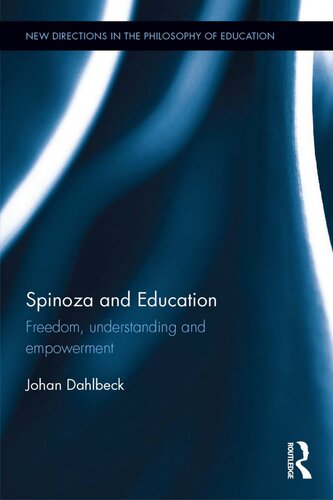

Most ebook files are in PDF format, so you can easily read them using various software such as Foxit Reader or directly on the Google Chrome browser.
Some ebook files are released by publishers in other formats such as .awz, .mobi, .epub, .fb2, etc. You may need to install specific software to read these formats on mobile/PC, such as Calibre.
Please read the tutorial at this link: https://ebookbell.com/faq
We offer FREE conversion to the popular formats you request; however, this may take some time. Therefore, right after payment, please email us, and we will try to provide the service as quickly as possible.
For some exceptional file formats or broken links (if any), please refrain from opening any disputes. Instead, email us first, and we will try to assist within a maximum of 6 hours.
EbookBell Team

4.4
42 reviewsSpinoza and Education offers a comprehensive investigation into the educational implications of Spinoza’s moral theory. Taking Spinoza’s naturalism as its point of departure, it constructs a considered account of education, taking special care to investigate the educational implications of Spinoza’s psychological egoism. What emerges is a counterintuitive form of education grounded in the egoistic striving of the teacher to persevere and to flourish in existence while still catering to the ethical demands of the students and the greater community.
In providing an educational reading of Spinoza’s moral theory, this book sets up a critical dialogue between educational theory and recent studies which highlight the centrality of ethics in Spinoza’s overall philosophy. By placing his work in a contemporary educational context, chapters explore a counterintuitive conception of education as an ethical project, aimed at overcoming the desire to seek short-term satisfaction and troubling the influential concept of the student as consumer. This book also considers how education, from a Spinozistic point of view, may be approached in terms of a kind of cognitive therapy serving to further a more scientifically adequate understanding of the world and aimed at combating prejudices and superstition.
Spinoza and Education demonstrates that Spinoza’s moral theory can further an educational ideal, where notions of freedom and self-preservation provide the conceptual core of a coherent philosophy of education. As such, it will appeal to researchers, academics and postgraduate students in the fields of philosophy of education, theory of education, critical thinking, philosophy, ethics, and Spinoza studies.